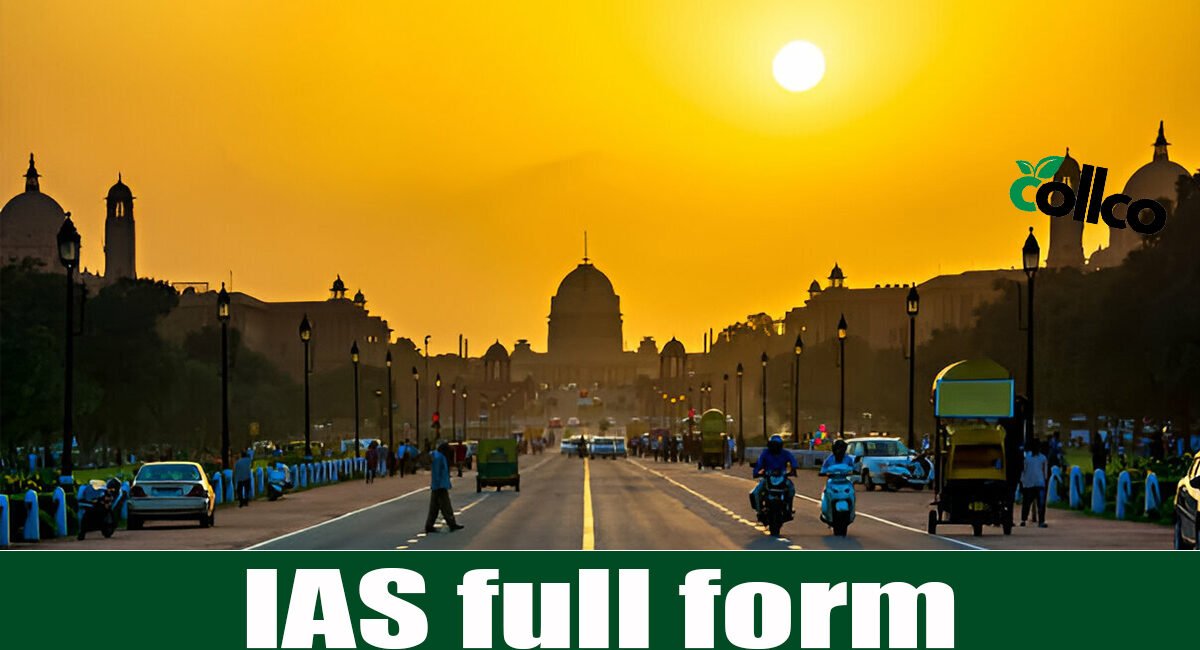What is tha full form of IAS, IPS, DM, IRS, IFS?
IAS full form India’s civil services play a pivotal role in the functioning of the government and the administration of the country. Among the most prestigious and sought-after of these services are the Indian Administrative Service (IAS), Indian Police Service (IPS), District Magistrates (DM), Indian Revenue Service (IRS), and Indian Foreign Service (IFS). These services attract some of the brightest minds in the country, who undergo rigorous training and selection processes to serve the nation.
Indian Administrative Service (IAS)
The Indian Administrative Service (IAS) is considered the most prestigious civil service in India. IAS officers are responsible for the implementation and execution of various government policies and programs at the national, state, and local levels. They hold key administrative positions in central and state governments, managing various departments and ministries.
IAS officers are selected through the highly competitive Civil Services Examination (CSE) conducted by the Union Public Service Commission (UPSC). The selection process includes a preliminary examination, a main examination, and a personal interview. Candidates who clear all stages are then allocated to different cadres, where they undergo rigorous training at the prestigious Lal Bahadur Shastri National Academy of Administration in Mussoorie.
IAS officers serve in various capacities, such as District Collectors, Divisional Commissioners, Secretaries to the Government, and even as Chief Secretaries to state governments. They play a vital role in policy formulation, implementation, and governance across various sectors, including agriculture, education, health, infrastructure, and more.
Indian Police Service (IPS)
The Indian Police Service (IPS) is responsible for maintaining law and order, upholding the rule of law, and ensuring the safety and security of the citizens of India. IPS officers are selected through the same Civil Services Examination (CSE) conducted by the UPSC.
IPS officers undergo rigorous training at the prestigious Sardar Vallabhbhai Patel National Police Academy in Hyderabad, where they are trained in various aspects of policing, such as investigation, law enforcement, crisis management, and leadership. Upon completion of their training, they are allocated to different state cadres, where they serve in various capacities, such as Superintendents of Police, Deputy Inspectors General, Inspectors General, and even as Directors General of Police.
IPS officers play a crucial role in maintaining law and order, preventing and investigating crimes, and ensuring the safety and security of citizens. They work closely with other law enforcement agencies and the judiciary to uphold the rule of law and maintain peace and harmony in society.
District Magistrates (DM)
District Magistrates (DMs), also known as District Collectors or Deputy Commissioners, are key administrative officers in the Indian district administration system. They are responsible for the overall administration and governance of their respective districts.
DMs are typically IAS officers who are appointed to these positions after serving in various capacities in the central and state governments. They oversee the implementation of various government schemes and programs at the district level and coordinate the activities of different government departments within their jurisdiction.
DMs play a crucial role in maintaining law and order, revenue administration, disaster management, and ensuring the overall development of their districts. They work closely with local authorities, elected representatives, and various stakeholders to address the needs and concerns of the local population.
Indian Revenue Service (IRS)
The Indian Revenue Service (IRS) is responsible for the assessment, collection, and administration of direct and indirect taxes in India. IRS officers are selected through the Civil Services Examination (CSE) conducted by the UPSC.
IRS officers undergo specialized training in taxation laws, accounting, auditing, and other related areas at the National Academy of Direct Taxes in Nagpur and the National Academy of Customs, Indirect Taxes and Narcotics in Faridabad. They serve in various capacities, such as Income Tax Officers, Commissioners of Income Tax, and Chief Commissioners of Income Tax, among others.
IRS officers play a critical role in ensuring compliance with tax laws, detecting and preventing tax evasion, and facilitating the smooth collection of revenues for the government. They contribute significantly to the country’s economic growth and development by ensuring a fair and efficient tax administration system.
Indian Foreign Service (IFS)
The Indian Foreign Service (IFS) is the diplomatic corps of India, responsible for representing the country’s interests abroad and maintaining diplomatic relations with other nations. IFS officers are selected through the Civil Services Examination (CSE) conducted by the UPSC.
IFS officers undergo specialized training at the Foreign Service Institute in New Delhi, where they are prepared for their diplomatic roles and responsibilities. They serve in various capacities, such as Third Secretaries, Second Secretaries, First Secretaries, Counsellors, Ministers, and Ambassadors, representing India in different countries and international organizations.
IFS officers play a crucial role in promoting India’s foreign policy objectives, fostering international cooperation, and safeguarding the country’s interests on the global stage. They work closely with their counterparts from other countries, negotiating treaties and agreements, facilitating trade and investment, and promoting cultural and educational exchanges.
The Indian Administrative Service (IAS), Indian Police Service (IPS), District Magistrates (DM), Indian Revenue Service (IRS), and Indian Foreign Service (IFS) are the backbone of India’s civil services. These services attract the best and brightest minds in the country, who dedicate their lives to serving the nation and its people.
IAS full form: Through their unwavering commitment, hard work, and professionalism, these civil servants contribute significantly to the nation’s progress, development, and prosperity. They play indispensable roles in governance, law enforcement, revenue administration, diplomacy, and various other critical areas, ensuring the smooth functioning of the government and the well-being of the citizens.
India’s civil services continue to uphold the highest standards of integrity, ethics, and excellence, earning the respect and admiration of the people they serve. As the country continues to grow and evolve, these services will undoubtedly play an even more pivotal role in shaping India’s future and ensuring its continued success on the global stage.


Leave a Comment